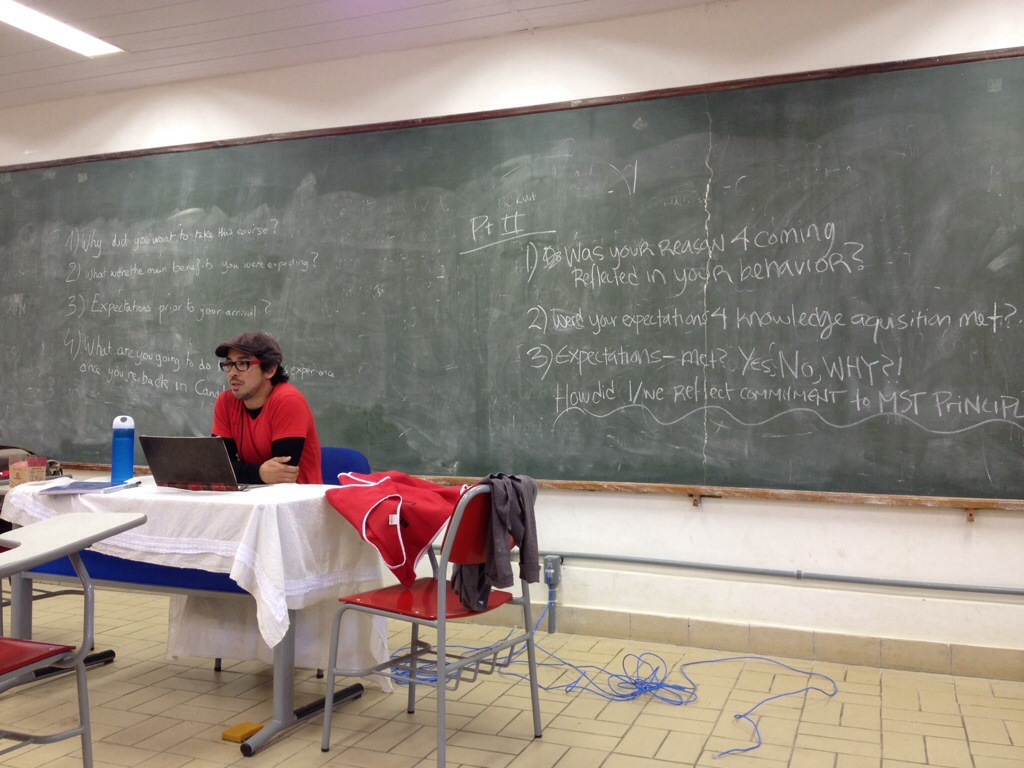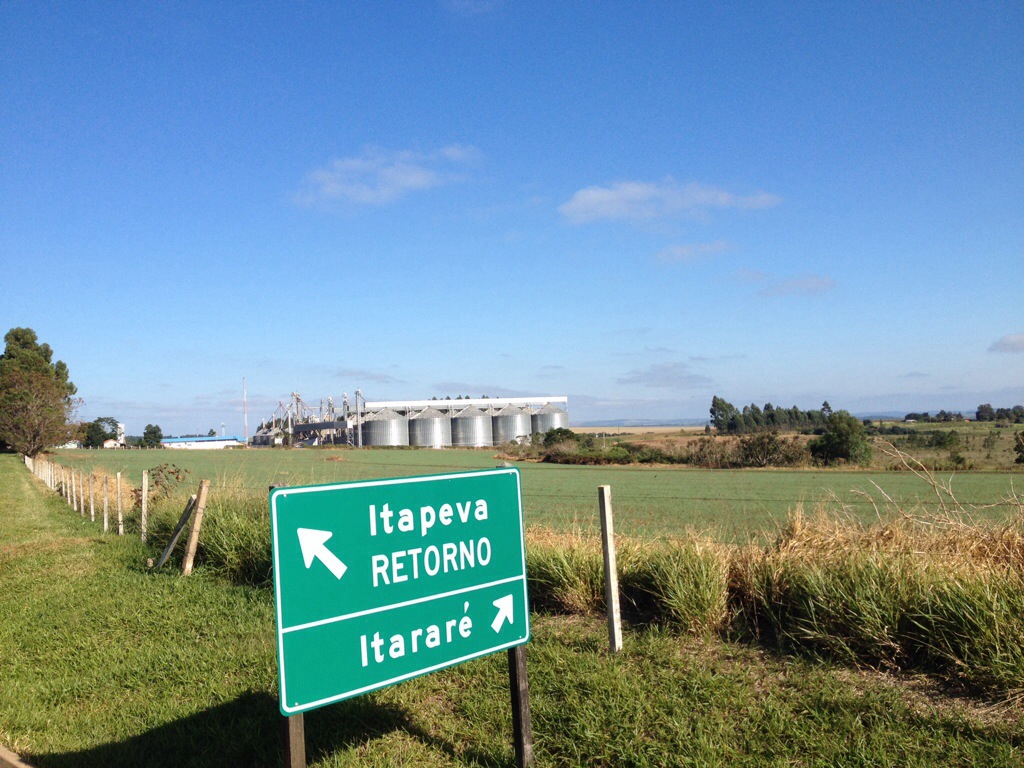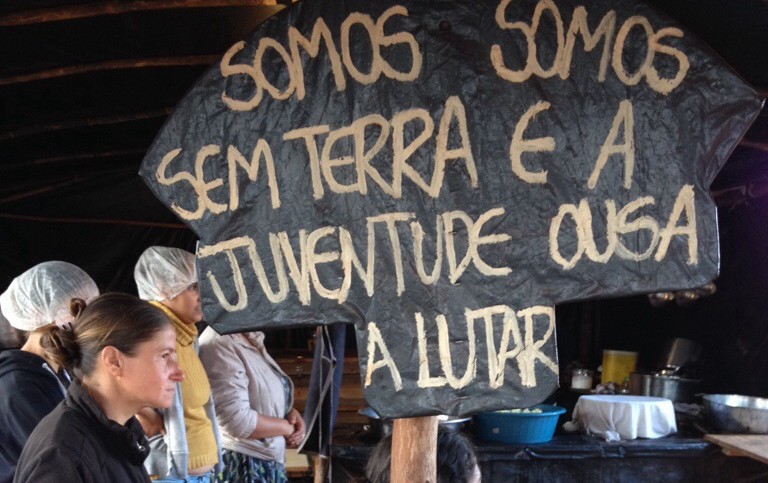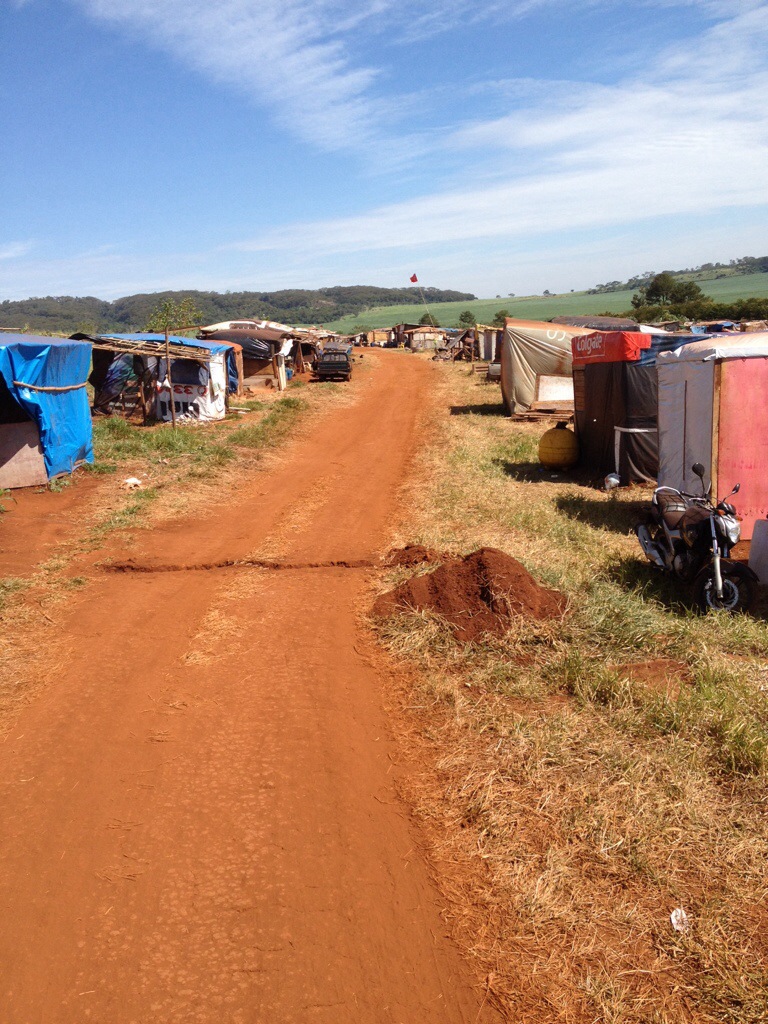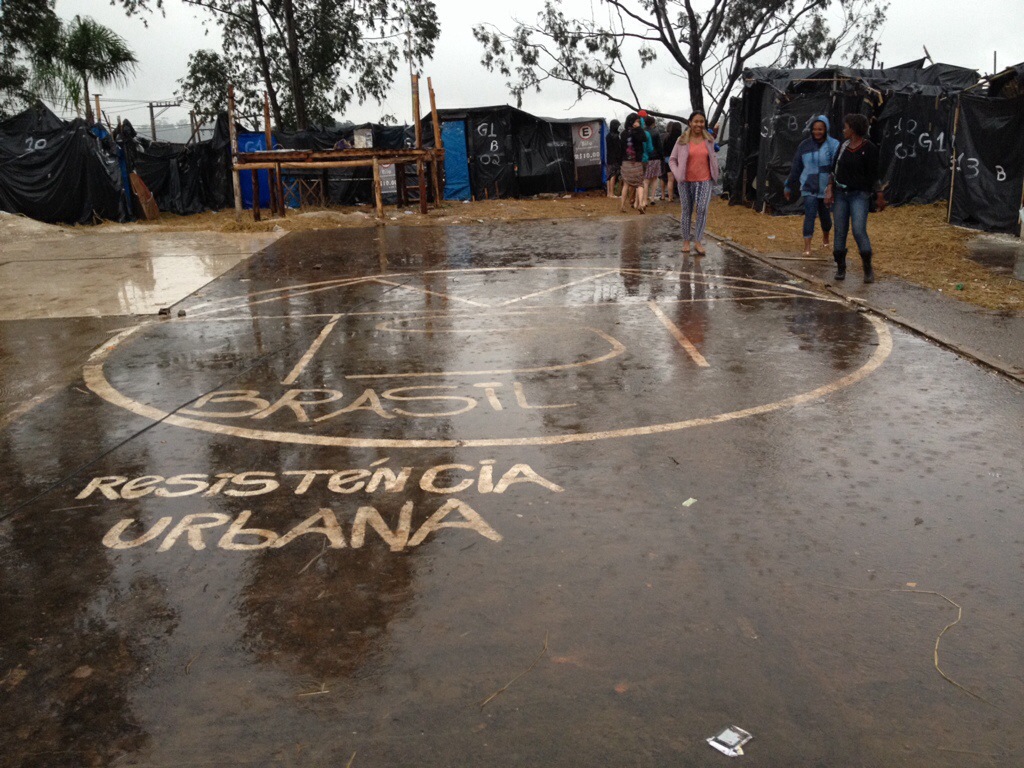The MST has 8 core values that it fosters among its members.
1. Collective direction (administration)
2. Division of tasks
3. Professionalism
4. Discipline
5. Planning
6. Study
7. Link to the masses
8. Critique and Auto Critique
This last principle of Critique and Auto Critique is central to the MST’s self assessment and evaluation methods. Through it the organization exposes and examines its own weaknesses and strengths. Its members also apply the method to expose their own shortcomings or flaws so as to seek self improvement. These principles were something our Canadian group was not only able to observe but had to actively participate in.
After spending a full week in the National Florestan Fernandes School (ENFF) we were scheduled to spend two hours critically assessing our own individual involvement in the school and as a group. We were to examine our expectations, personal motives for participating in the exchange and personal commitment to the core values of the MST. The exercise opened the floor to a in-depth evaluation of each other’s personal motives, expectations and critical participation in the program. At the end the group experienced a collective feeling of deeper understanding and perspective of each other–albeit five hours later.
This principle of critique is central to the MST’s political formation. By gaining greater insight into the weaknesses and flaws of its policies and their implementations the organization is able to grow and create pertinent changes to address these downfalls. While the 8 core values are things the MST members belief in and profess to adhere to in actually they are not all followed. This contradiction in belief versus practice is enough of an issue to spark national debates on why the MST’s members are not practitioners of their own self professed and agreed upon core values.
In this spirit of critique the parallel value of Auto Critique is something members are expected to follow and practice on a daily basis. By being critical of their personal motives, expectations and personal weaknesses the members are taught to seek personal refinement through exposing their weaknesses. Personal humility and honesty are hailed as desirable and admirable traits.
For us Canadians we learned how exposed we were when it came to issues of Canadian mining companies in Latin America. Our little group composed of French nationals, Americans and Franco and Anglophone Canadian students were confronted with two hours of statistics regarding the exploitation of Canadian mining companies and their contamination and promotion of inequality, corruption and oppression in the region. This informal debate exposed many of us to the operations of these companies for the first time. The feeling of confusion, shame and discomfort as well as unpreparedness were widely shared by many in the group. During our self-assessment period this drew attention to our own lack of communication as some in the group were familiar with the topic but felt excluded from the formulation of our response to these accusative presentations. This time-consuming exercise produced greater solidarity and understanding within the group as well as a deeper appreciation for a universal principle that is shared among many large organizations both political and not.
While the group felt exposed at the debate a moment that produced unexpected emotions came when people from 8 ethnic backgrounds declared a special mother’s day message in their own respective languages: Portuguese, Quiché, Tzotzil, Zoque, English, Mandarin, French, Guarani, and Norwegian. With the following video we end our weeklong stay at the ENFF and share a special message produced by students at the school. Happy Mother’s Day to all mother’s around the world!

